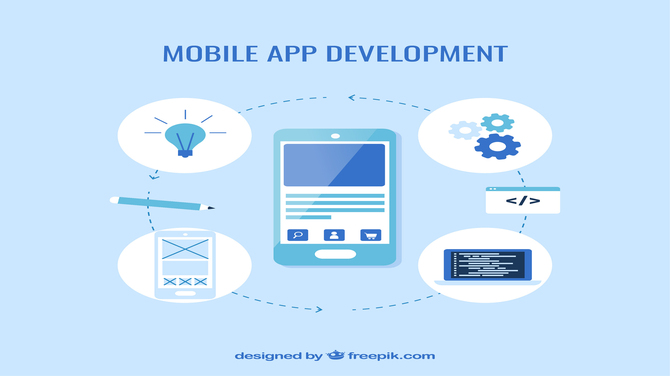In the ever-evolving landscape of mobile technology, Android stands as a testament to innovation and adaptability. While the app icon on your home screen serves as the gateway to a multitude of functionalities, the true marvel lies in the intricate systems and technologies that power these applications. This article delves into the often-overlooked facets of Android innovation, shedding light on the advancements that shape the user experience beyond the surface.
The Evolution of Android’s Core Architecture
Android’s journey from its inception to the present day is marked by significant architectural advancements. Initially, Android operated on a monolithic kernel, which, over time, evolved into a more modular and flexible system. This transformation has allowed for better resource management, enhanced security, and improved performance across a diverse range of devices.
One of the pivotal changes in Android’s architecture is the introduction of the Android Runtime (ART), which replaced the Dalvik Virtual Machine. ART offers ahead-of-time (AOT) compilation, leading to faster application execution and reduced battery consumption. This shift underscores Android’s commitment to optimizing performance while maintaining energy efficiency.
The Role of Jetpack Compose in Modern UI Development
User interface (UI) development in Android has witnessed a paradigm shift with the advent of Jetpack Compose. This modern UI toolkit, built on Kotlin, enables developers to create intuitive and responsive interfaces with less code. By embracing a declarative approach, Jetpack Compose simplifies UI development, making it more accessible and efficient.
The integration of Jetpack Compose into Android’s development ecosystem reflects a broader trend towards streamlining the development process. It empowers developers to focus on delivering rich user experiences without being bogged down by complex UI frameworks.
Embracing Artificial Intelligence and Machine Learning
Artificial Intelligence (AI) and Machine Learning (ML) are no longer futuristic concepts but integral components of modern Android applications. From personalized recommendations to advanced image recognition, AI and ML enhance the functionality and intelligence of apps.
Android’s support for AI and ML is evident in its robust libraries and tools, such as TensorFlow Lite and ML Kit. These resources facilitate the integration of AI capabilities into apps, enabling developers to build smarter applications that cater to user needs more effectively.
Enhancing Security and Privacy
In an era where data breaches and privacy concerns are prevalent, Android has taken significant strides to bolster security. The platform’s commitment to user privacy is reflected in features like scoped storage, biometric authentication, and enhanced app permission models.
Moreover, Android’s regular security updates and adherence to industry standards ensure that devices remain protected against emerging threats. These measures instill confidence among users, knowing that their data is safeguarded within the Android ecosystem.
The Rise of 5G and Its Impact on App Performance
The rollout of 5G technology heralds a new era of connectivity, offering faster data speeds and lower latency. For Android applications, this translates to enhanced performance, enabling real-time data processing and seamless streaming experiences.
Developers are leveraging 5G’s capabilities to create applications that deliver high-quality content and interactive experiences. Whether it’s immersive gaming or high-definition video conferencing, 5G empowers Android apps to meet the growing demands of users.
The Integration of Augmented Reality (AR) and Virtual Reality (VR)
Augmented Reality (AR) and Virtual Reality (VR) are transforming the way users interact with their devices. Android’s support for ARCore and VR technologies allows developers to create immersive experiences that blend the digital and physical worlds.
Applications utilizing AR and VR are making significant impacts across various industries, including education, healthcare, and retail. By providing interactive and engaging experiences, AR and VR are setting new standards for user engagement on Android devices.
The Emergence of Blockchain Technology
Blockchain technology, primarily associated with cryptocurrencies, is finding its way into Android app development. Its decentralized nature offers enhanced security, transparency, and trust, making it ideal for applications that require secure transactions and data integrity.
Android developers are exploring blockchain’s potential to create applications that facilitate secure peer-to-peer transactions, digital identity verification, and transparent supply chain management. This integration signifies Android’s adaptability in embracing emerging technologies to meet user expectations.
The Future of Android: Quantum Computing and Beyond
Looking ahead, Android’s innovation trajectory points towards the integration of quantum computing. While still in its nascent stages, quantum computing promises to revolutionize data processing and problem-solving capabilities.
Android’s openness to incorporating quantum computing reflects its commitment to staying at the forefront of technological advancements. As quantum technologies mature, Android is poised to harness their potential to deliver unprecedented performance and capabilities to users.
Conclusion
The world of Android innovation extends far beyond the app icon on your screen. From its evolving architecture to the integration of cutting-edge technologies like AI, AR, and blockchain, Android continues to redefine the mobile experience. For businesses seeking to leverage these advancements, partnering with a reputable provider of Android app development services can ensure the creation of applications that are not only functional but also innovative and secure. As Android continues to evolve, so too does the potential for creating applications that push the boundaries of what’s possible in mobile technology.
